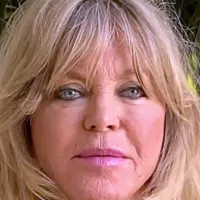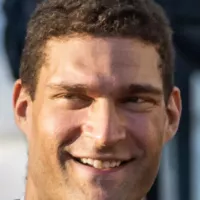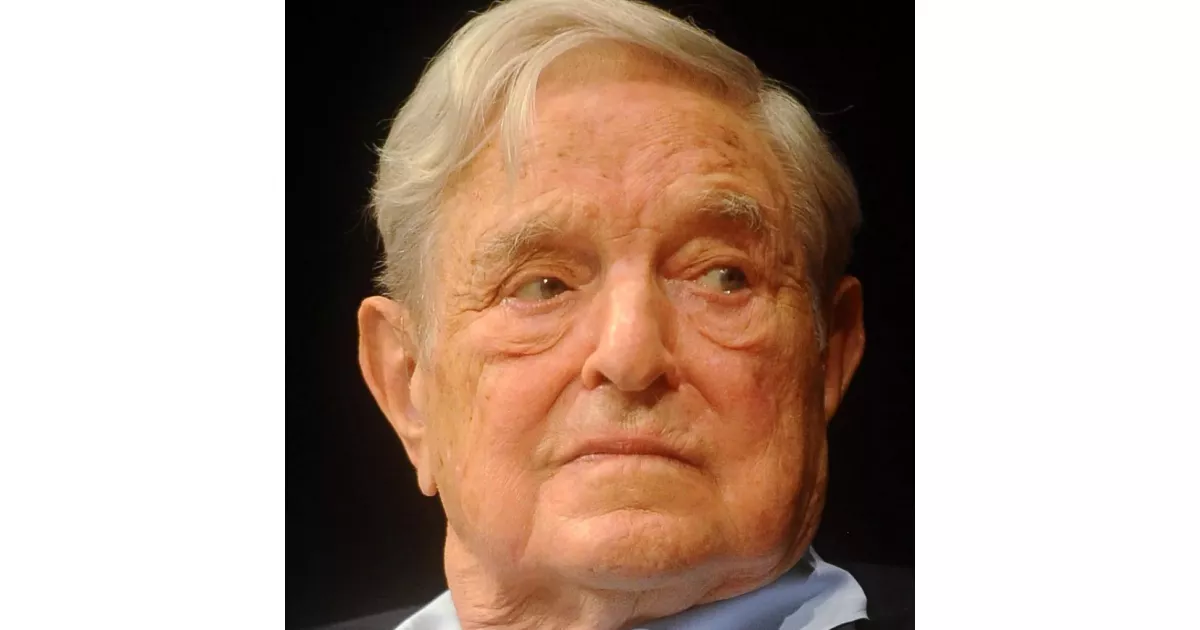Controversies are a part of history. Explore the biggest scandals linked to George Soros.
George Soros is a Hungarian-American investor and philanthropist with a net worth of $7.2 billion as of May 2025. He is renowned for his significant philanthropic contributions, having donated over $32 billion to the Open Society Foundations, with $15 billion already distributed. These donations represent 64% of his original fortune. In 2020, Forbes recognized Soros as the "most generous giver" based on the percentage of his net worth donated.
1989: Insider Trading Investigation
In 1989, the Commission des Opérations de Bourse (COB) investigated George Soros's transaction in Société Générale for insider trading. Initial investigations found him innocent.
1994: Offer to help mother commit suicide and Endorsement of Oregon Death with Dignity Act
In 1994, George Soros delivered a speech where he mentioned offering to help his mother, a member of the Hemlock Society, commit suicide. In the same speech, he endorsed the Oregon Death with Dignity Act and helped fund its advertising campaign.
1997: Closure of Belarus Foundation
In 1997, George Soros closed his foundation in Belarus after it was fined $3 million by the government for "tax and currency violations". Soros called the fines part of a campaign to "destroy independent society".
1997: Shorting of Thai Baht and Malaysian Ringgit
In 1997, Soros Fund Management shorted the Thai baht and the Malaysian ringgit due to an unsustainable discrepancy between the trade and capital accounts. Later, Prime Minister Mahathir of Malaysia accused Soros of causing the financial crisis, which Soros denied, stating they were buyers of the currency during the crisis to profit from earlier speculation.
1999: Paul Krugman's Criticism
In 1999, economist Paul Krugman criticized Soros's effect on financial markets.
September 2002: OSI donates to Defense Committee of Lynne Stewart
In September 2002, the Open Society Institute gave $20,000 to the Defense Committee of Lynne Stewart. An OSI spokeswoman claimed there was a right-to-counsel issue worthy of their support.
November 11, 2003: Focus on Removing President Bush from Office
On November 11, 2003, George Soros stated that removing President George W. Bush from office was his "central focus" and "a matter of life and death." He expressed willingness to sacrifice his entire fortune to defeat Bush. Soros then donated $3 million to the Center for American Progress, $2.5 million to MoveOn.org, and $20 million to America Coming Together to support Democrats in the 2004 election.
2003: Publication of "The Bubble of American Supremacy"
In 2003, George Soros's book, "The Bubble of American Supremacy", was published, offering a critique of the Bush administration's "War on Terror" and advocating against Bush's re-election. Soros linked political events to self-reinforcing reflexive processes similar to those in stock market bubbles.
2003: Remarks on Anti-Semitism at Jewish Funders Network Conference
In 2003, during a conference of the Jewish Funders Network, George Soros suggested that policies of the Bush and Sharon administrations, along with unintended consequences of his own actions, were contributing to a new European anti-Semitism. His comments sparked controversy and criticism, with some accusing him of blaming the victim.
September 28, 2004: Speech and Campaign Kickoff
On September 28, 2004, George Soros dedicated additional funds to the campaign against President Bush and initiated a multistate tour. He delivered a speech titled "Why We Must Not Re-elect President Bush" at the National Press Club in Washington, D.C. His site became highly trafficked after Dick Cheney mistakenly referred to FactCheck.org as 'factcheck.com'.
June 14, 2006: French Supreme Court Conviction
On June 14, 2006, the French Supreme Court confirmed George Soros's conviction for insider trading related to a 1988 transaction in Société Générale, reducing the penalty to €940,000.
December 2006: Appeal to the European Court of Human Rights
In December 2006, George Soros appealed to the European Court of Human Rights, arguing that the 14-year delay in bringing the insider trading case to trial precluded a fair hearing.
2006: Soros discusses US role in world order
In 2006, George Soros stated that the United States, by declaring a 'war on terror' after September 11, had set the wrong agenda for the world and is the main obstacle to a stable and just world order.
2006: Criticism in Turkey
In a 2006 interview, Ercis Kurtulus, head of the Social Transparency Movement Association (TSHD) in Turkey, claimed that "Soros carried out his will in Ukraine and Georgia by using these NGOs" and suggested banning NGOs from taking money from foreigners.
2010: Soros expresses concern about China's power
In 2010, George Soros expressed concern about the growth of Chinese economic and political power and compared China's government to the US government.
2010: Reuters reports and then retracts Soros's alleged connection to Wall Street Protests
In 2010, a Reuters story stated there were 'indirect financial links' between George Soros and Adbusters which acted as a catalyst for Wall Street Protests. Later Reuters retracted it's story saying that Soros's spokesman and Adbusters' co-founder Kalle Lasn both said that Adbusters never received any contributions from Soros.
October 2011: Denial of Funding Wall Street Protests
In October 2011, a Reuters story clarified that George Soros was not a funder of the Wall Street Protests, correcting an earlier report that suggested indirect financial links existed as late as 2010 between Soros and Adbusters, the catalyst for the protests.
October 2011: European Court Rejects Appeal
In October 2011, the European Court of Human Rights rejected George Soros's appeal in a 4–3 decision, stating that he was aware of the risk of breaking insider trading laws.
2012: Labeling as Enemy of the State in Hungary
Since 2012, the Hungarian Fidesz government has labelled George Soros as an enemy of the state.
July 2015: Soros states Putin's annexation of Crimea challenged world order
In July 2015, George Soros stated that Putin's annexation of Crimea was a challenge to the prevailing world order and hypothesized that Putin wants to destabilize Ukraine.
October 2015: Soros criticizes Orbán's handling of migrant crisis
In October 2015, George Soros criticized Hungarian Prime Minister Viktor Orbán's handling of the 2015 European migrant crisis, contrasting Orbán's focus on protecting national borders with his own plan to protect refugees.
November 2015: Russia bans Soros's charities
In November 2015, Russia banned the Open Society Foundations (OSF) and the Open Society Institute (OSI), two pro-democracy charities founded by George Soros, stating they posed a threat to the foundations of the constitutional system of the Russian Federation and the security of the state.
December 2015: Russian intergovernmental letter states Soros's charities were forming a perverted perception of history
In December 2015, a Russian intergovernmental letter stated that George Soros's charities were 'forming a perverted perception of history and making ideological directives, alien to Russian ideology, popular'.
2015: Disagreement over European Migrant Crisis
In 2015, The Hungarian government disagreed with George Soros's involvement in the 2015 European migrant crisis. Soros called the government "a mafia state".
2015: Conspiracy Theories and Demonization
In 2015, due to his Jewish identity, wealth, and philanthropy, George Soros was the target of conspiracy theories, particularly related to the European migrant crisis. The Hungarian government launched a poster campaign demonizing him, with some critics viewing him as leading an international cabal.
January 2016: Books related to Soros' program withdrawn in Russia
In January 2016, 53 books related to George Soros's "Renewal of Humanitarian Education" program were withdrawn and seized in Russia. A Russian intergovernmental letter stated that Soros's charities were forming a perverted perception of history.
2016: Views on Israel and Funding of Critical NGOs
In 2016, George Soros stated that while he doesn't deny Jews the right to a national existence, he doesn't want to be part of it. Leaked emails revealed his Open Society Foundation's objective to challenge Israel's policies and support NGOs critical of Israel, including those promoting the Boycott, Divestment and Sanctions movement.
January 2017: Launch of "Stop Operation Soros" in Macedonia
In January 2017, the "Stop Operation Soros" (SOS) initiative was launched in Macedonia, aiming to present information about how George Soros operates worldwide and calling for the "de-Soros-ization" of Macedonia.
March 2017: Inquiry into Grants to Soros-Funded Groups
In March 2017, six US senators requested that the Secretary of State investigate grants given by the State Department and USAID to groups funded by George Soros. Judicial Watch also filed a lawsuit regarding $5 million transferred to Soros's Open Society branch in Macedonia.
July 2017: Hungarian Billboard Campaign Vilifying Soros
In July 2017, a billboard campaign in Hungary, backed by Prime Minister Viktor Orbán, vilified George Soros as an enemy of the state with the slogan "Let's not allow Soros to have the last laugh". The campaign was widely criticized as anti-Semitic, evoking historical parallels to Nazi propaganda.
2017: $10-Million Lawsuit Filed by Beny Steinmetz
In 2017, Beny Steinmetz filed a $10 million lawsuit against George Soros, alleging that Soros influenced the government of Guinea to freeze Steinmetz's company BSG Resources out of iron ore mining contracts, citing animus toward Israel. Soros dismissed the suit as frivolous and a PR stunt.
2017: Soros criticizes Trump
In 2017, George Soros described Donald Trump as a con man, predicted Trump would fail because his ideas were self-contradictory, believed Trump was preparing for a trade war, and expected financial markets to do poorly.
May 16, 2018: Open Society Foundations Move Office
On May 16, 2018, George Soros's Open Society Foundations announced they would move its office from Budapest to Berlin, citing an "increasingly repressive" environment in Hungary.
October 2018: United States Mail Bombing Attempts
In October 2018, George Soros's home was targeted with a pipe bomb as part of the United States mail bombing attempts. Similar bombs were mailed to other prominent figures like Hillary Clinton and Barack Obama.
October 22, 2018: Pipe Bomb Placed at Soros's Home
On October 22, 2018, a pipe bomb was discovered in the mailbox at George Soros's home in Katonah, New York, as part of a series of mail bombing attempts targeting prominent Democrats and liberals. The bomb was discovered by a caretaker and later exploded by the FBI as part of their investigation.
October 26, 2018: Arrest of Cesar Sayoc Jr.
On October 26, 2018, Cesar Sayoc Jr. was arrested in Aventura, Florida, as a suspect in the mailing of pipe bombs, including the one sent to George Soros's home.
2018: "Stop Soros package"
As the 2018 election period started, the Hungarian government introduced public posters with a photo of George Soros to create hostility towards him, and prepared the "Stop Soros package" against NGOs doing volunteer work related to the refugee crisis.
January 2019: Soros labels Xi Jinping a dangerous opponent
In January 2019, George Soros labeled Xi Jinping as the 'most dangerous opponent of open societies' at the World Economic Forum in Davos, urged the US to block Huawei and ZTE's 5G dominance, and criticized China's Social Credit System.
April 2019: Awarded Ridenhour Prize for Courage
In April 2019, George Soros was awarded the Ridenhour Prize for Courage, using his acceptance address to address the negative portrayal of him in his native Hungary and donating the prize money to the Hungarian Spectrum.
August 2019: Sentencing of Cesar Sayoc Jr.
In August 2019, Cesar Sayoc Jr. was sentenced to 20 years in prison for mailing 16 pipe bombs to 13 victims, including George Soros. None of the devices detonated.
May 2022: Soros warns of third world war due to Russian invasion
In May 2022, George Soros stated that the Russian invasion of Ukraine may be the start of a third world war and that Putin must be defeated as soon as possible.
February 2023: Soros criticizes Modi for Islamophobia and authoritarianism
In February 2023, George Soros criticized Indian Prime Minister Narendra Modi for alleged Islamophobia, cronyism and authoritarianism. Modi's Bharatiya Janata Party accused Soros of trying to undermine Indian democracy.
December 2023: Swatting Incident
In December 2023, George Soros was swatted during a period of similar harassment targeting American political figures.
December 2023: Accusations of Supporting Anti-Israel Organizations
In December 2023, Israel's ambassador to the United Nations, Gilad Erdan, accused George Soros of supporting pro-Palestinian organizations that seek the destruction of the State of Israel as a Jewish state. Soros's son, Alexander, dismissed these accusations as dishonest, right-wing attacks.
Mentioned in this timeline
Huawei is a Chinese multinational technology corporation headquartered in Shenzhen...

Donald John Trump is an American politician media personality and...
Ukraine is a large country in Eastern Europe second in...

Barack Obama the th U S President - was the...

Hillary Diane Rodham Clinton is an American politician lawyer and...

George W Bush the rd U S President - is...
Trending

Rob Schneider is an American actor and comedian best known for his time as a cast member on Saturday Night...

4 months ago DeRozan Believes Clifford Can Be A Star; Kings Surprise Lineup Move.

3 months ago Goldie Hawn Celebrates Her 80th Birthday by Defying Ageing with Youthful Looks

10 months ago Mavericks Announce News Before Kings Game; Malik Monk's Performance Anticipated.

9 months ago Brook Lopez's Role in Bucks-Pacers Series Questioned; Workload Reduced in NBA Playoffs

3 months ago Cade Cunningham Leads Pistons to Sixth Straight Win Despite Mounting Injuries.
Popular

Kid Rock born Robert James Ritchie is an American musician...

Melania Trump a Slovenian-American former model has served as First...

XXXTentacion born Jahseh Dwayne Ricardo Onfroy was a controversial yet...

Thomas Douglas Homan is an American law enforcement officer who...

Instagram is a photo and video-sharing social networking service owned...
The Winter Olympic Games a major international multi-sport event held...
